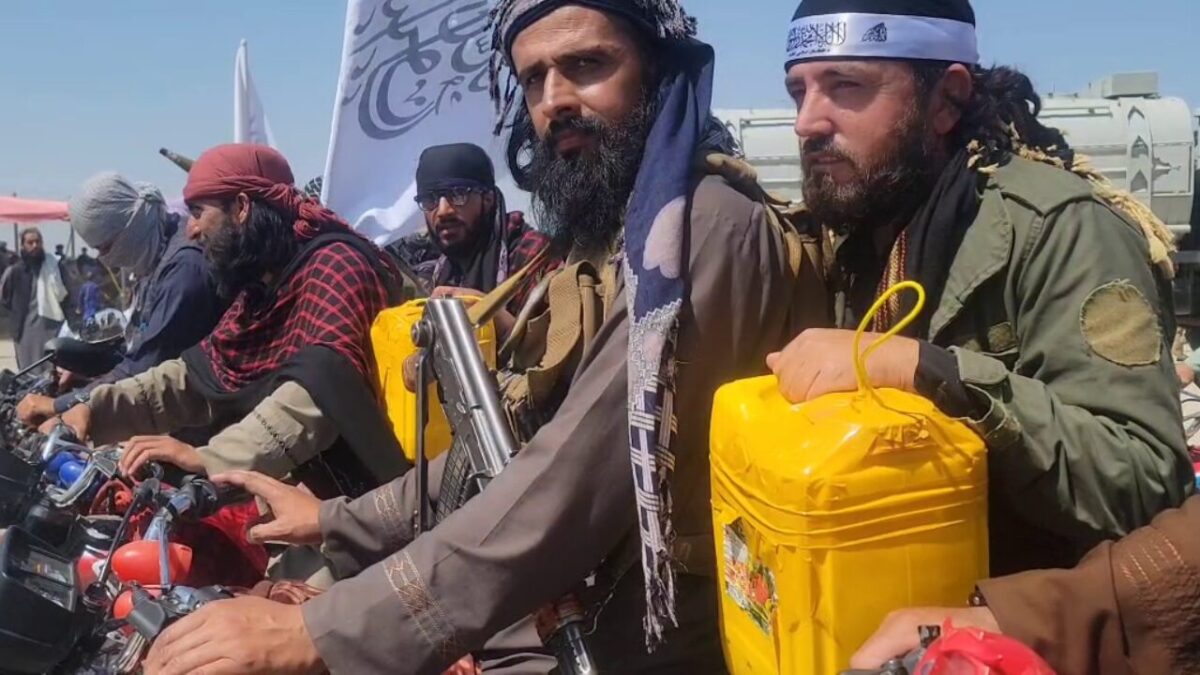Amnesty International has reported that the Taliban, as Afghanistan’s de facto authorities, have been committing human rights violations and crimes under international law with “absolute impunity” over the past three years, particularly against women and girls. The Afghan community, the organization noted, is grappling with unresolved frustration as the international response remains inadequate.
Based on consultations with more than 150 stakeholders—including Afghan human rights defenders, academics, women protesters, youth, civil society representatives, and journalists—Amnesty International documented widespread disillusionment with the international community’s failure to hold the Taliban accountable or to prevent further harm.
“We spoke with people representing a cross-section of Afghan society worldwide who overwhelmingly believe that the international community has failed the people of Afghanistan. Not only have they failed to hold the Taliban accountable for crimes and human rights violations, but they have also failed to develop a strategic direction to prevent further harm,” said Samira Hamidi, Amnesty International’s Regional Campaigner for South Asia.
Three years after the Taliban’s return to power, the absence of concrete measures to address the human rights crisis in Afghanistan remains, which Hamidi described as “a source of shame for the world.”
The consultations were conducted with individuals in 21 provinces across Afghanistan and with those in exile in ten countries, including the United States, the United Kingdom, Germany, France, Belgium, Spain, Switzerland, Italy, Canada, and Pakistan.
Women’s and girls’ rights
More than 20 Afghan women human rights defenders across 21 Afghan provinces told Amnesty International that they have lost agency in every aspect of their lives. Many of these women, previously employed in fields such as law, politics, journalism, education, and sports, now express a sense of being “no one” with limited opportunities for employment or participation in economic and cultural life.
Razia, a human rights defender from Kunduz province, said, “Women who have lost their agency, jobs, and economic status are told they deserve it, and that the Taliban’s return is a positive step to shut down those who were preaching adultery in the name of human rights and women’s rights.”
The Taliban have dismissed allegations of gender persecution, claiming compliance with Shariah law and “Afghan culture.” Despite their initial claims that restrictive measures were temporary and for safety, these repressive policies remain in place three years later.
“We were told the Taliban had changed. We were told not to spoil peace efforts. We were told the world would stand with us. Yet today we are living our miseries alone,” said Nazifa, a teacher in Mazar-e-Sharif.
Justice and accountability
The formal justice system in Afghanistan collapsed after the Taliban’s return to power, and in November 2022, the Taliban’s Supreme Leader ordered the full implementation of Shariah law.
“The Taliban announced that there is no need for lawyers during trials. They do not believe in formal justice systems but rely heavily on their interpretation of Shariah law, led by religious scholars from Madrasas with no formal legal education,” said Ahmad Ahmadi, a former lawyer now in exile in Europe.
Civil society representatives reported the return of corporal punishment, including public floggings, executions, amputations, stonings, and other forms of torture, all in violation of international law. The absence of fair trials and access to legal remedies remains underreported.
Shrinking civic space
Afghanistan’s civil society is rapidly shrinking, Amnesty International said. it added that human rights defenders, including women protesters, grassroots organizations, journalists, and political activists, are perceived as enemies by the Taliban. Those who protest face enforced disappearances, arbitrary detentions, imprisonment, torture, and other forms of ill-treatment. Many have fled the country, leaving behind their families and jobs. Hundreds remain stranded in Iran, Pakistan, and Turkey, facing legal and financial challenges and the threat of forced deportation, the organiztion said.
The Afghan human rights community reported exclusion not only from the Taliban but also from the international community. “Those of us in Afghanistan are not invited to important discussions because it’s deemed ‘too risky.’ Those of us in exile are excluded because we don’t live in Afghanistan and are therefore deemed not ‘legitimate,’” said Tabasoom Noori, a women’s rights activist living in exile in the United States.
Interantional support
Human rights defenders told Amnesty International that the gravity of Afghanistan’s human rights crisis is often downplayed by the Taliban’s propaganda, which portrays the country as “safer” with a growing economy where citizens are treated with respect and dignity under Shariah law.
In reality, the Taliban have created an environment of fear and absolute control. “The same group who were blowing themselves up and killing civilians and security forces don’t do it anymore because they are in power, so of course [Afghanistan] is safer,” said Zarifa, a human rights defender living in exile in the United States.
“After three years, the frustration in the Afghan community is palpable. Despite countless statements and meetings, the world is still wringing its hands as the Taliban continue violating human rights and undoing twenty years of progress in every sphere of public and private life.
“There is a need for all actors working on Afghanistan to coordinate and find safe, creative platforms to debate and engage in discussions to find effective long-term solutions. This can only happen when they have the necessary avenues, resources, and skills. The international community must commit to supporting these steps, respecting the diverse voices from the Afghan community, and refraining from unprincipled engagement with the Taliban that would only prove detrimental to collective efforts. The time for coordinated action is now,” said Hamidi.




